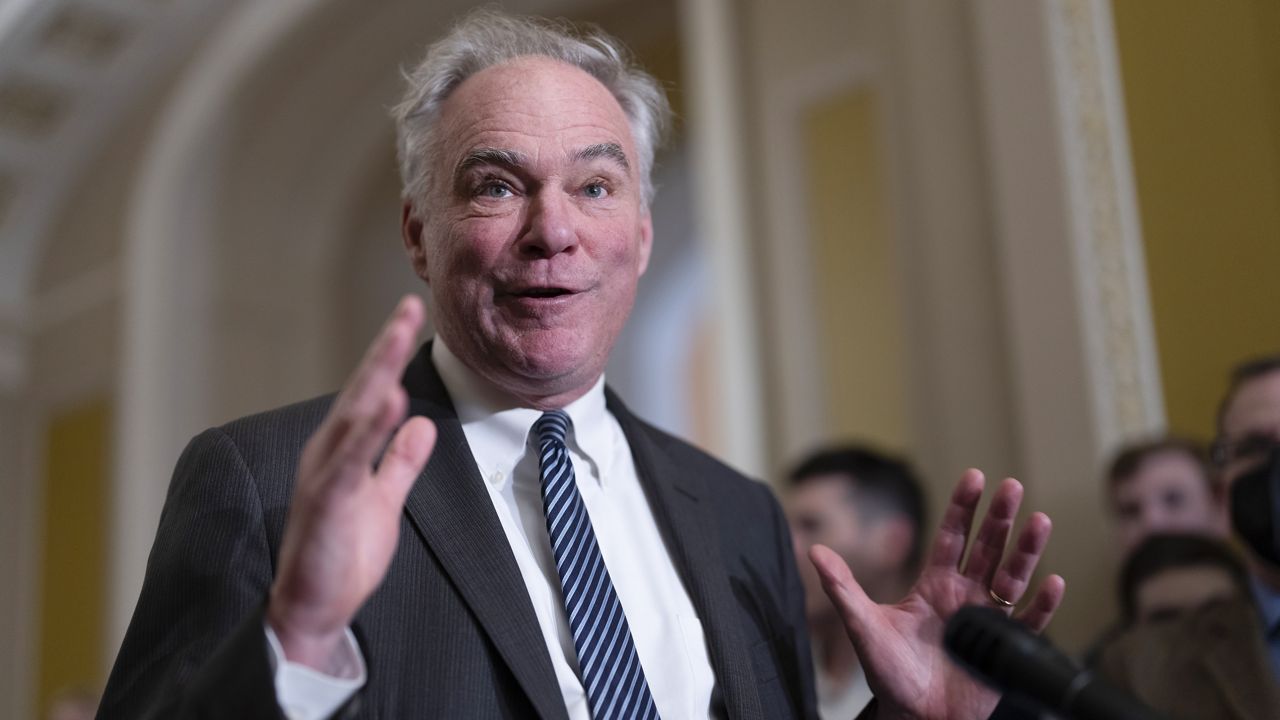Again staring down the possibility of a federal government shutdown, members of Congress from both sides of the aisle are pushing legislation aimed at eliminating that possibility in the future.
What You Need To Know
- Again staring down the possibility of a federal government shutdown, members of Congress from both sides of the aisle are pushing legislation aimed at eliminating that possibility in the future
- Multiple bills have been introduced this session that would ensure the government continues to operate if lawmakers fail to pass funding measures
- Last week, Sen. Tim Kaine and Rep. Donald Beyer, both Virginia Democrats, teamed up to each introduce in their respective chambers the “End Shutdowns Act"
- Every two years starting in 2019, Sen. James Lankford, R-Okla., has introduced a separate bill called the “Prevent Government Shutdowns Act," which includes Republican, Democratic and independent co-sponsors
Multiple bills have been introduced this session that would ensure the government continues to operate if lawmakers fail to pass funding measures.
Last week, Sen. Tim Kaine and Rep. Donald Beyer, both Virginia Democrats, teamed up to each introduce in their respective chambers the “End Shutdowns Act.” Under the bill, stopgap funding, known as a continuing resolution, would automatically be triggered if Congress does not approve funding by Oct. 1 each year. The funding would continue at levels from the prior fiscal year.
The bill also would prohibit lawmakers from considering other matters until they pass budget legislation.
“Government shutdowns have disastrous consequences for federal employees and government contractors and slow down critical government services that millions of Americans rely on like getting replacement Social Security cards and food inspections,” Kaine said in a statement. “But politicians continue to use or threaten to use government shutdowns as a negotiating tactic. This is unacceptable, which is why I’m reintroducing my bill to prevent government shutdowns.”
Said Beyer: “Intentionally shuttering the government of the most powerful country on earth is foolish, weakening and embarrassing America on the world stage. It also does lasting damage to our economy and inflicts harrowing uncertainty on millions of civil servants and their families, many of whom live far from Washington. Congress should permanently take the threat of a government shutdown off the table.”
Kaine and Beyer also introduced the bills in 2019.
Similarly, every two years starting in 2019, Sen. James Lankford, R-Okla., has introduced a separate bill called the “Prevent Government Shutdowns Act.”
Lankford’s legislation includes Republican, Democratic and independent co-sponsors.
A shutdown is “wasteful for the taxpayer,” Lankford told CNN on Thursday morning. “It's difficult on the federal workers, and it's difficult to the American people. Let's have the debate on debt and deficit, but let's hold the American people harmless in the process.”
The Lankford bill, too, would automatically initiate a continuing resolution at the previous fiscal year’s spending levels, but in rolling 14-day periods. It would also block members of Congress from receiving any taxpayer-funded travel allowances and prohibit motions to recess or adjourn for more than 23 hours.
“It's our version of lock them in a room till they get the decision made,” Sen. Angus King, I-Vt., one of the legislation’s co-authors, told CNN.
While previous efforts to block shutdowns have gone nowhere, King said, “This may be a moment when people are going to start taking a solution seriously.”
“The reality is this is becoming a regular occurrence and … it's very damaging to the economy,” he said.
Congress faces a Sept. 30 deadline for funding the government.
While the periodic threat of a shutdown has worn on some legislators, others view it as a bargaining chip.
Members of the far-right House Freedom Caucus have said they won’t support a continuing resolution unless it includes a slate of their priorities, including passing a border security bill that has already cleared the House, addressing the so-called “weaponization” of the Justice Department and ending “woke” Defense Department policies. They also said they oppose a “blank check” for additional aid to Ukraine in its war against Russia.
“We're not interested in a continuing resolution that continues the policies and the spending of the Biden-Schumer-Pelosi era, and we're not going to vote for it,” Freedom Caucus Chairman Rep. Scott Perry, R-Pa., said Tuesday.
In July, Rep. Bob Good, R-Va., argued, “Most of the American people won't even miss it if the government is shut down temporarily.”
Speaker Kevin McCarthy, R-Calif., said Thursday that House Republicans will be focused on reaching a deal to fund the government when they return to Capitol Hill on Monday.
“When we come back, we're not going to leave,” he said. “We're going to get this done. Nobody wins in a government shutdown.”
Spectrum News’ Maddie Gannon contributed to this report.
Ryan Chatelain - Digital Media Producer
Ryan Chatelain is a national news digital content producer for Spectrum News and is based in New York City. He has previously covered both news and sports for WFAN Sports Radio, CBS New York, Newsday, amNewYork and The Courier in his home state of Louisiana.








